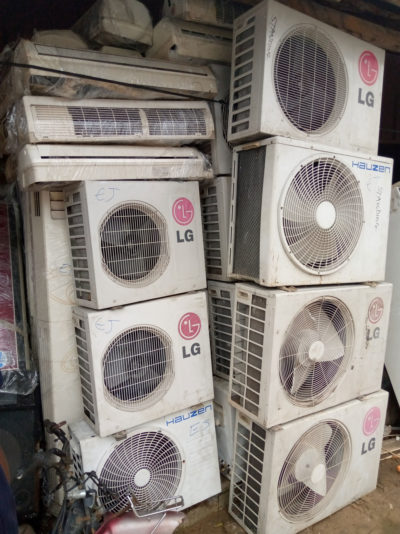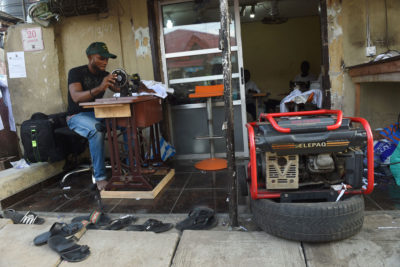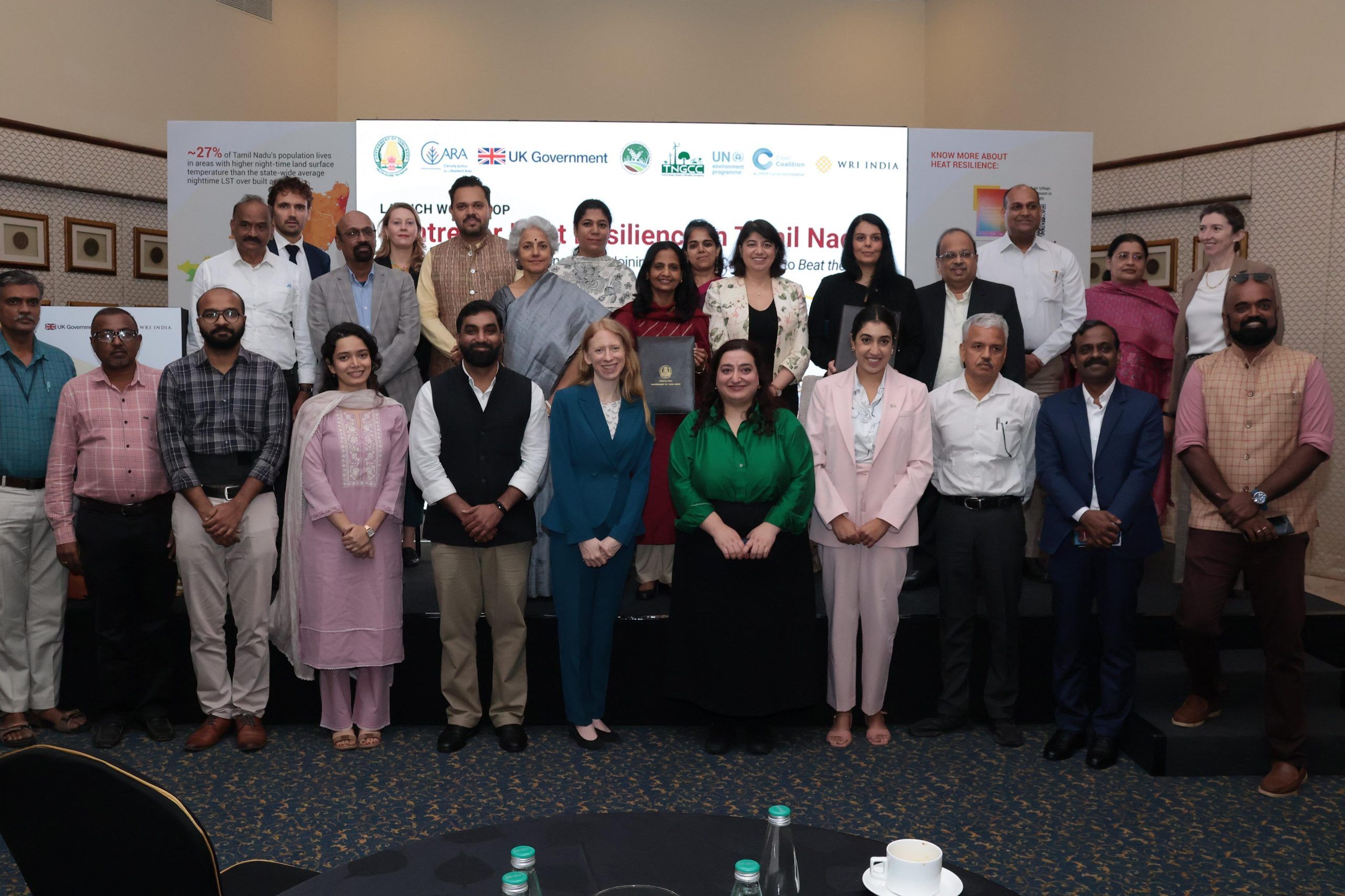For years, many African countries have been flooded with millions of antiquated secondhand air conditioners and refrigerators imported primarily from Europe. Nigeria and other West African countries with high summer temperatures and close proximity to European shipping ports are especially popular destinations for used cooling appliances, which arrive stuffed into containers, cargo vehicles, and even used cars. The appliances are often brokenand those that still work often consume two to three times more electricity than new models.
“They come in branded as new, but when they’re off-loaded it’s mostly near-end-of-life e-waste,” said Leslie Adogame, executive director of SRADev, a Nigerian nonprofit environmental health research group. “They’re certainly cheaper to buy, but they use a lot more energy and don’t meet environmental standards.”
A half-dozen African countries have joined a United Nations working group, launched in April, that is trying to stop these flows, many of which are unlawful. Shipping non-working electronic equipment is illegal under both the Basel Convention, an international treaty governing hazardous waste, and the European Union’s Waste Shipment Directive.
New cooling appliances being sold in Africa are not much better. Recent research by the energy efficiency nonprofit CLASP and the Institute for Governance & Sustainable Development (IGSD) showed that 35 percent of new room air conditioners sold in Africa’s 10 largest countries in 2018 were low-efficiency units that could not be sold legally in the countries where they were made, including the United States, Japan, South Korea, and China. A quarter of the 650,000 low-efficiency units — none of which meet common efficiency standards used in developed countries — were imported from non-African countries, primarily China. The remaining three-quarters were largely imported and then assembled in Africa, mostly in Nigeria and Egypt.
“Environmentally harmful dumping is occurring in Africa,” said Gabrielle Dreyfus, senior scientist at IGSD. “These kinds of markets deprive consumers of a smarter choice by flooding markets with lower-price products that cost consumers more over time.”
The report also showed that 790,000 air conditioning units sold in Africa contained obsolete ozone-depleting, greenhouse gas refrigerants known as R-22, which are being phased out globally under the Montreal Protocol. Another 820,000 units contained R-410A refrigerants, a highly potent greenhouse gas with 2,000 times more global warming potential than carbon dioxide. They are being phased out under the Montreal Protocol’s Kigali Amendment, beginning in 2019 in developed countries and later this decade in developing countries.
Efforts to halt these damaging trade flows have been going on for years, but most have been unsuccessful, in large part simply because more and more African consumers want affordable devices to stay cool.
Ghana is a noteworthy exception. Alarmed by the millions of obsolete cooling appliances that were entering the country and the widening gap between energy demand and power production, the country banned all used air conditioner and refrigerator imports in 2008. In 2013, when the government began enforcing the ban, illegal imports plummeted. Last year, new appliances, mostly from China, made up 95 percent of the market.
“We succeeded in reversing the market in favor of new appliances,” said Kofi Agyarko, director of energy efficiency and climate change at the Ghana Energy Commission, who credits tough enforcement for catalyzing the shift. While new, more efficient appliances cost two to three times as much as used ones, they consume a third as much electricity, with Ghanaians saving on average $140 a year on energy bills, Agyarko said.
But even if countries can effectively ban used imports, how can they limit the flood of inefficient new appliances into Africa?
Rwanda thinks it has the answer. Last year, as part of a comprehensive national cooling strategy, Rwanda enacted Africa’s toughest energy standards and energy labeling for new air conditioners and other cooling appliances. The mandatory standards, which take effect next year, are modeled after guidelines developed by the UN’s United for Efficiency program.
Brian Holuj, who leads the program’s work on cooling appliances, says Rwanda’s efforts are an important breakthrough. “For the first time in Africa, Rwanda will demonstrate the impact of mandatory policies, coupled with strong energy efficiency requirements and limits on global warming-damaging coolants in new products,” he said.





